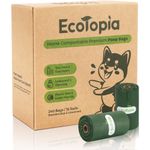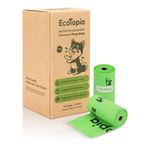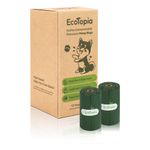In the age of sustainability, the rise of compostable products offers a hopeful alternative to the ongoing plastic crisis. However, not all compostable products are created equally. Without reliable certifications, it can be difficult for consumers to distinguish between products that are truly sustainable and those that only make vague claims. This is where compostable certifications like ASTM D6400 and EN 13432 come in.
What Are Compostable Certifications?
Compostable certifications ensure that products will break down efficiently and safely when placed in a composting environment. The standards for these certifications are rigorous, requiring that the products:
- Break down in a specific timeframe (typically 12 weeks) under industrial composting conditions.
- Do not release toxic substances or leave harmful residues behind.
- Meet specific criteria for biodegradability.
By requiring certified products to meet these stringent standards, organizations like the Biodegradable Products Institute (BPI) and TÜV Austria ensure that consumers can trust compostable products to fulfill their promise of environmental sustainability.
The Problem with Greenwashing
Greenwashing—where brands falsely claim their products are eco-friendly—has become a significant issue in the sustainability market. Without clear certifications, it can be challenging for consumers to identify genuinely sustainable products. This is especially true in the compostable product market, where many brands claim their products are biodegradable or compostable without providing any verifiable proof.
Certifications like BPI and EN 13432 provide transparency, ensuring that products live up to their environmental claims. For example, a certified compostable bag will break down within 12 weeks, leaving no toxic residues behind, whereas an uncertified product may take years to decompose, causing long-term harm to the environment.
EcoTopia’s Commitment to Certified Compostable Products
At EcoTopia, we understand that certification is essential to guarantee that our products contribute to sustainability. That's why we ensure all our products are certified by leading organizations like BPI and TÜV Austria. These certifications verify that our compostable bags meet the highest standards for biodegradability and environmental safety.
By choosing certified compostable products, consumers can confidently make eco-friendly decisions, knowing that their purchases support responsible environmental practices. Additionally, certified products ensure that businesses are held accountable for their environmental impact, pushing the entire industry toward more sustainable practices.
Why Certification Matters for a Sustainable Future
As the world continues to confront the growing threat of plastic pollution, certified compostable products are a critical part of the solution. They provide an effective, environmentally responsible alternative to single-use plastics and help reduce the overall environmental footprint of waste management.
By supporting certified compostable products, consumers are helping to create a future where waste is minimized, landfills are reduced, and the planet can heal. The more we demand certification, the more companies will adopt sustainable practices and contribute to a cleaner, greener world.





